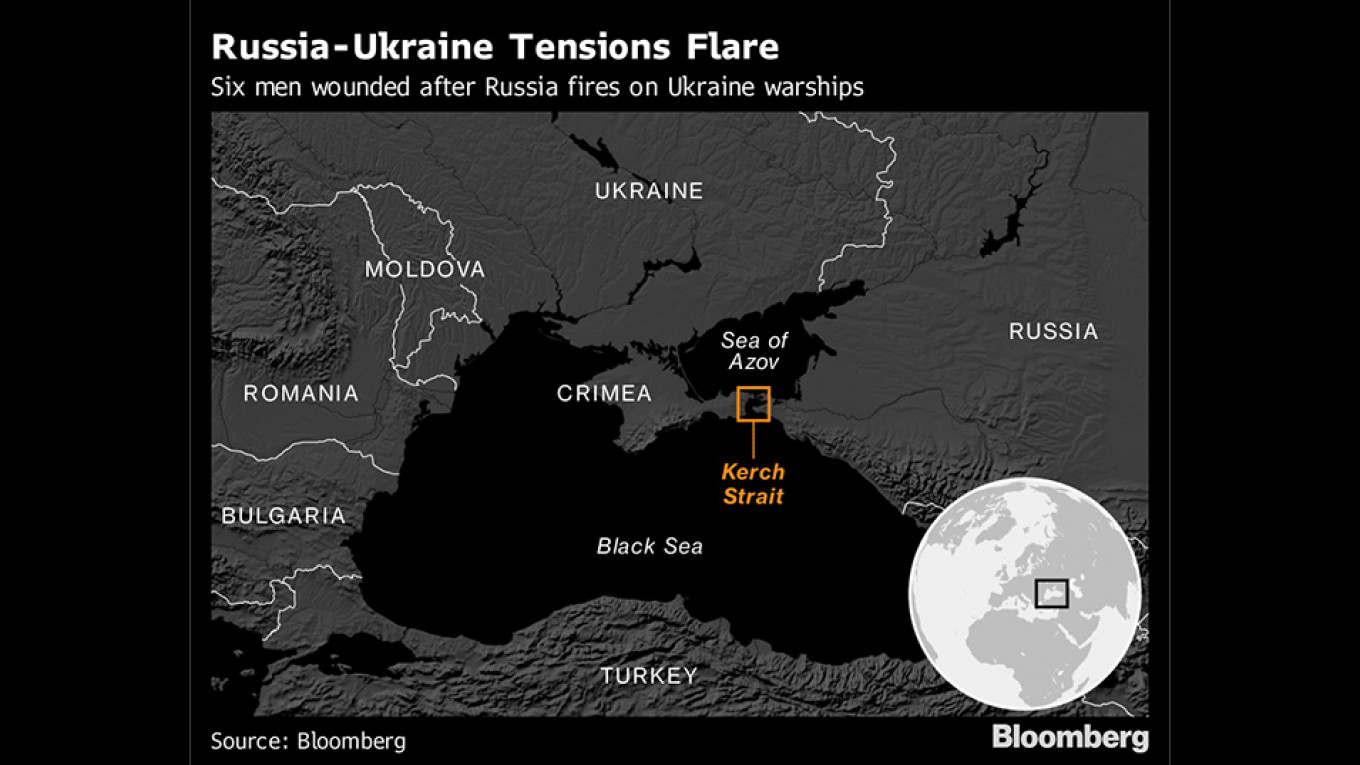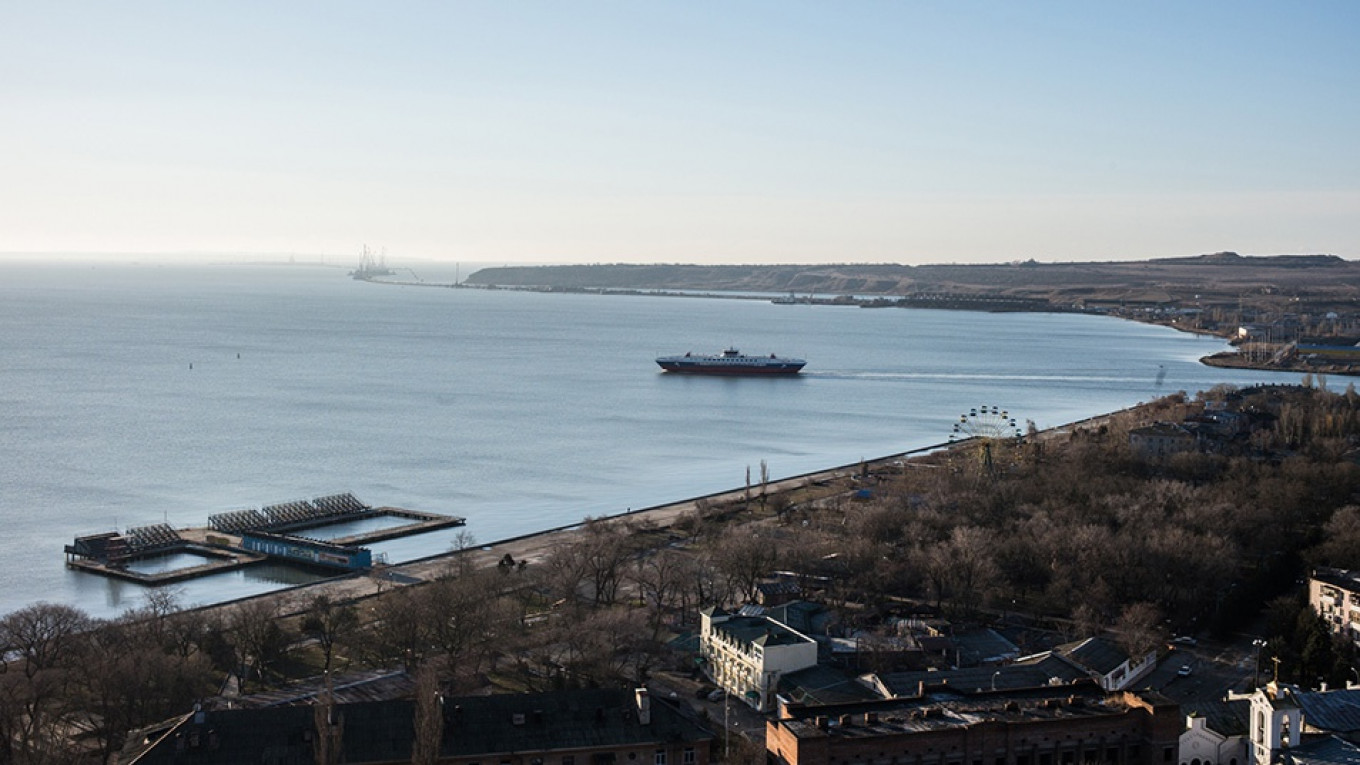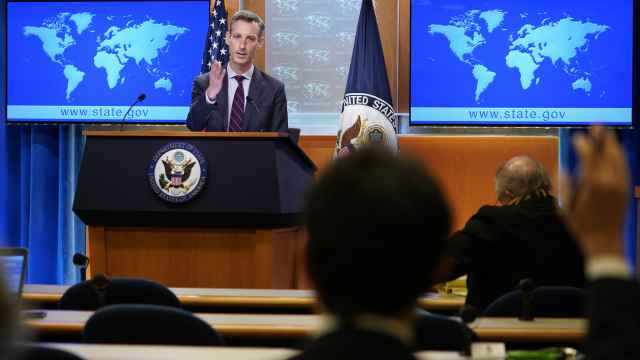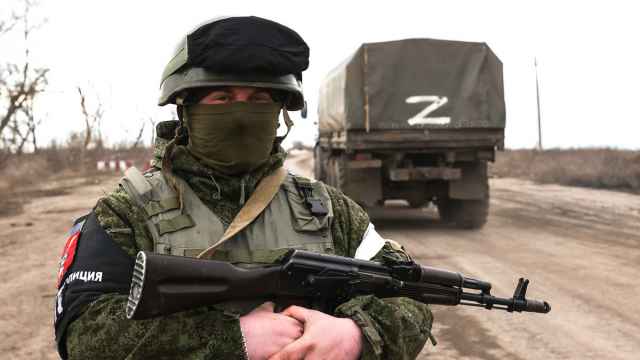Russia’s blockade of the Kerch Strait amid a flare-up in tensions with Ukraine highlights yet another chokepoint for commodity trade.
The waterway connects the Sea of Azov to the Black Sea and has been described in a Chatham House study as a “chokepoint of regional significance” in the global food trade. It’s a major export channel for Black Sea grain, oil, minerals and timber, according to the 2017 report. Chicago wheat futures climbed 1 percent on Monday while corn was little changed.
Russia exported almost 7 million metric tons of grains and pulses from Sea of Azov ports in the seven months through January, according to U.S. Department of Agriculture data. That’s about 23 percent of the country’s total shipments for the period. The shallow water ports in the sea are principally used by small ships to supply Ukrainian and Russian grain to Turkey, according to the Economist Intelligence Unit.
For the latest on the renewal of tensions between Ukraine and Russia, click here.

While Russia ships a significant amount of grains through the strait, it’s unlikely to block its own cargoes, otherwise it would be “shooting itself in the foot,” said Darin Friedrichs, a risk management consultant at INTL FCStone Inc. in Shanghai. That means the impact on grains markets should be “relatively limited,” he said. The two Ukrainian ports of Berdyansk and Mariupol account for about 9 percent of the country’s exports, he said.
Global commodity markets are exposed to a number of maritime chokepoints around the world, from the Straits of Malacca to the Suez Canal. Any disruption to shipments through these waterways can lead to supply delays, potentially pushing up the cost of transportation and commodity prices.
Earlier this year, Russia completed a 19-kilometer (12-mile) bridge across the Kerch Strait, prompting complaints from Ukraine that it was being used to delay its ships, exert political pressure and hurt the country’s economy.
Grain ports around the Sea of Azov include the Russian ports of Rostov-on-Don and Azov, as well as Berdyansk and Mariupol in Ukraine.
A UN Security Council meeting has been called for 16.00 GMT on Monday, according to U.S. Ambassador Nikki Haley. NATO has urged “restraint and de-escalation,” adding it fully supports Ukraine’s sovereignty and called on Russia to ensure unhindered access to Ukrainian ports in the Azov Sea.
The incident underscores the transport risks in a region that’s becoming an ever more important supplier of grain to the global market, and exports of commodities such as corn and wheat could fall if the situation worsens, said Cherry Zhang, an analyst with Shanghai JC Intelligence Co.
A Message from The Moscow Times:
Dear readers,
We are facing unprecedented challenges. Russia's Prosecutor General's Office has designated The Moscow Times as an "undesirable" organization, criminalizing our work and putting our staff at risk of prosecution. This follows our earlier unjust labeling as a "foreign agent."
These actions are direct attempts to silence independent journalism in Russia. The authorities claim our work "discredits the decisions of the Russian leadership." We see things differently: we strive to provide accurate, unbiased reporting on Russia.
We, the journalists of The Moscow Times, refuse to be silenced. But to continue our work, we need your help.
Your support, no matter how small, makes a world of difference. If you can, please support us monthly starting from just $2. It's quick to set up, and every contribution makes a significant impact.
By supporting The Moscow Times, you're defending open, independent journalism in the face of repression. Thank you for standing with us.
Remind me later.






